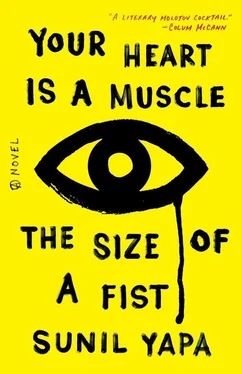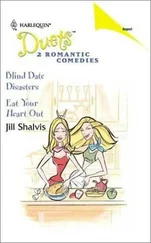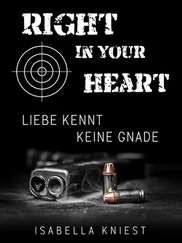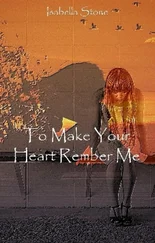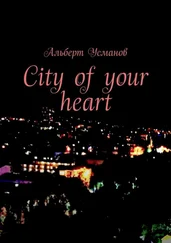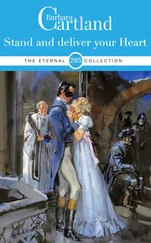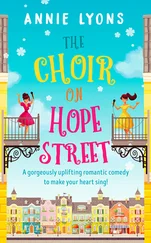They were screaming and crying and chanting.
They didn’t understand — there were pressures, circumstances beyond his control.
“Sorry,” he said. “I’m so so sorry.”
He hit the boy with the baton, a half-swing with power, aimed for the fragile bend of his elbow.
He popped him in the pressure point of the throat. Knocked him behind the ear which was a mistake because then the blood started to flow.
“Sorry,” he said. “I’m so very sorry.”
Finally the kid fell away from the two girls on either side and his officers moved in and began to pull their bodies apart. The back of the kid’s head was split open and his neck was smeared with blood. Bishop watched as his officers tried to carry the boy’s body, neither of them wanting to get near the mess that was his face.
One officer was headed west with his arm; the other had one leg gripped by the foot and was moving east. The Chief watched in dumbfounded dismay. He thought for a moment he was going to be sick in his hat, but then the moment passed, and he turned and moved on to the next seated pair.
“I’m sorry,” he said. “I’m so sorry.”
King roamed the edges. She knelt among the fallen, feeling overwhelmed and lost. She lifted a face and poured Maalox and water into its upturned eyes and she dragged the wounded from the intersection and the entire time she was fighting the voice that wanted to tell her: This is your fault.
They talked until they agreed, it was that simple. They made decisions together, or not at all. Consensus was the political heart of what they did and who they were. It was the process by which they channeled their anger, used their sorrow and outrage, their deep sense of separateness, toward a higher purpose. And she loved it.
She loved the discipline, the community, the sense that they themselves had created an independent republic of eight hearts and minds governed by the purest expression of democracy that could be had. Conversations that went around and around until every point had been discussed and dissected and deconstructed. Years ago, if you had described this process to her she would have laughed. How did anything ever get done? It sounded like you’d still be debating, deeply mired in your democratic process, when the cops came to kick in your teeth. But now, in the thick of things, it was sometimes magical, as if joined by a common devotion to the process, they shared the same consciousness, eight solitary souls holding steady like one orange-tipped compass needle quivering at dead north.
So why did she let it happen? Why did she make it happen?
“I’ll do it,” Victor had said. “Lockdown. I’ll be the one.”
And she had swallowed hard, knowing it was wrong, but knowing, too, that the cops were coming and they needed to get people into lockdown if they were going to keep this intersection. So she ignored the lump in her throat and nodded, knowing it might be the move that saved them, that saved this intersection, but knowing in her heart it might also be the beginning of the unraveling of all they had built, all they believed and had fought for.
Even as she tried to remember the swirl of words from The Black Cross Medical Field Guide, the dark voice told her: Did you see that boy? That is your fault. All yours. The dark current that wanted to suck her under and never let go even as she touched and poured. Your fault.
A bottle with a squirt cap is ideal for the eye flush.
A man in a tan suit vomiting into his hands and when King reached him with the bottle he was blind and had no idea where to look.
“Here, I’m here,” she said.
Before Mexico, she had told John Henry she wanted hard truths. There was something in the armed conflict of the Third World that drew her. A certain starkness, the solid reality of black-and-white lines that was unavailable to her in America.
She said this to John Henry, John Henry the alchemist, who had taught her how to transform her sadness and confusion into a strength as dependable as steel.
John Henry who said you must use your body. You must use your hands and spirit and mind. John Henry who taught her if you didn’t do the work, then you wouldn’t survive the work. You’d be left, in the end, with nothing but your own obsessed turbulence.
A solution of half Maalox (plain or mint) and half water works best to clear the eyes.
An older black man who had gone down to one knee and was holding his head to the sky.
King saying, “Don’t touch your face,” and reaching for her water bottle.
John Henry and King had lived in a box on top of a hill. The box was a recycled shipping container once corresponding to the ISO regulation size of 53 feet long, 20 feet wide, and 20 feet high. Together they designed windows and a rooftop garden, working by lamplight through the long summer evenings; later she cut the steel with an acetylene welding torch. From the top of the hill they could see the purple-black waters of the Sound. The dorsal fins of dolphins, orcas, breaking the surface. On a clear day they could see as far as the snow-covered slopes of Rainier. The perfect cinder cone volcano dormant over the city and valleys below.
A bandanna soaked in apple cider vinegar and tightly tied around the nose and mouth is far better than nothing, but still a last resort.
A middle-aged woman in a red rain slicker pawing at her face. King let the water run down her face like milk and held her while she sobbed.
King didn’t know where she was most needed, where she could best help, and she looked at cops and the spiraling gas and felt a sort of frustration rising in her throat. She couldn’t get to everybody. And she couldn’t stop the cops from firing. She fought the urge to just turn and run. There were bodies lying everywhere, the police wading through the pileup, three or four cops walking with spray bottles that looked like small fire extinguishers, the spray looping over them in an arc. King kept her head down. She kept her hands clean as she tried to remember what John Henry had taught her.
The best protection is a gas mask. However, we can no longer recommend the Israeli gas mask as the lenses have been known to shatter on impact.
The canisters dropped and sputtered. Thick fumes smoldered in the air. People stumbled among the bodies, coughing and blind.
King saw a woman on her knees in the middle of the intersection. Her hands clasped in prayer, her face a mask of running blood.
Of course the locals thought they were crazy. But on their hill they had no neighbors. On a clear day, a hundred, two hundred miles of vision. Sight lines in every direction. No neighbors who could see like this.
And then came news of the first arrest. A man she had known as Billy the Kid. William Garrison, the paper said, eco-terrorist, conspiracy charges. Mastermind of an attack on the Vail ski resort in Colorado.
When she got in her truck and drove into town to check her email, the message boards were lit up with it. Billy — she still could not think of him as William — arrested in New York City, five years after the fact. It was unprecedented. The FBI had found other fugitives over the years, of course, but they had never pursued environmental activists with such vigor. Nor prosecuted them so hard.
Eco-terrorism.
It was a message and King heard it loud and clear.
Three more from Vail went down within the month. She began making plans for Mexico. She had friends there. It wasn’t running or hiding out. It was a trip. It would be a productive time. Write some essays. Make a film. Take photos. She was so terribly frightened, but she didn’t dare tell a soul.
A tremendously fat bald man who cried into King’s shoulder as she worked to clean his face. The man repeating the words “thank you” as if they were a prayer, clutching her arm and then collapsing against her. Her arms around him as he shook.
Читать дальше
